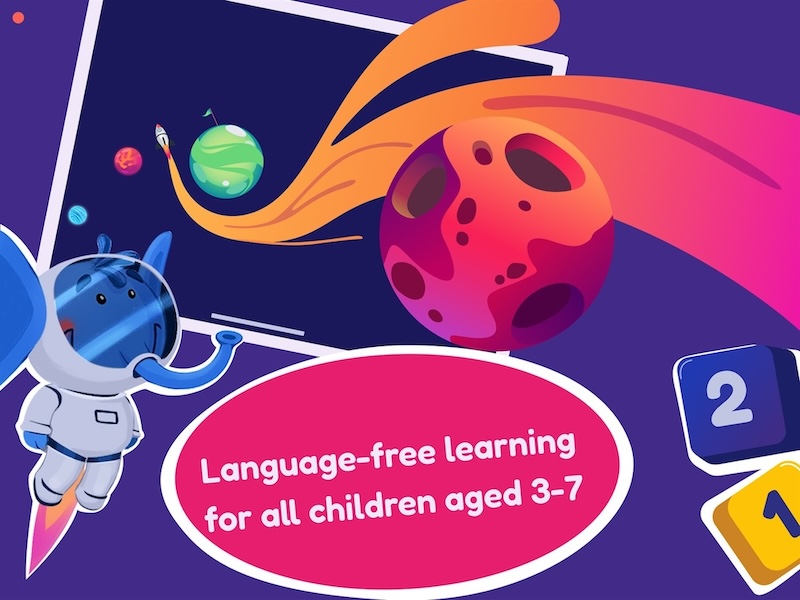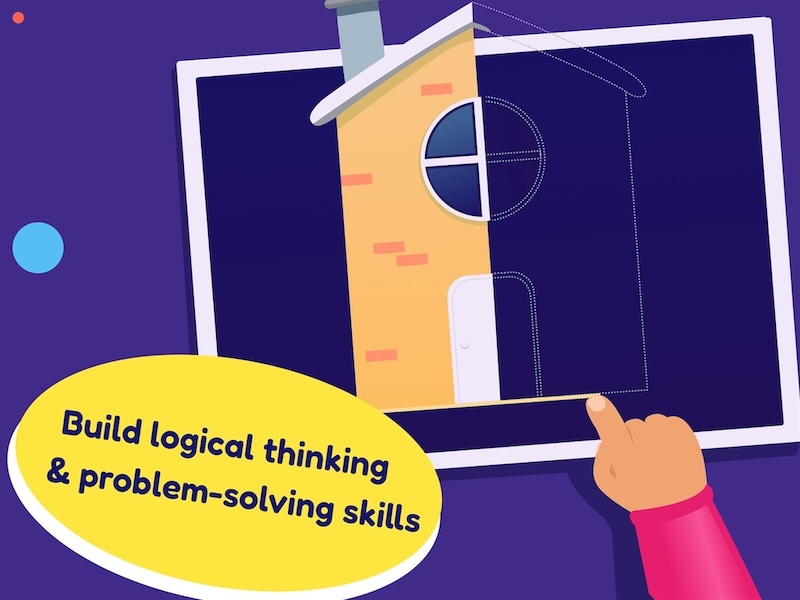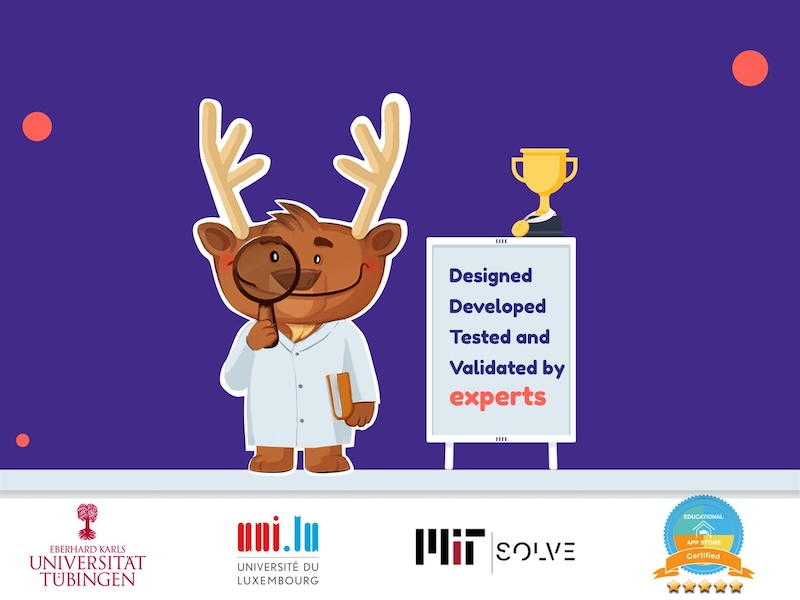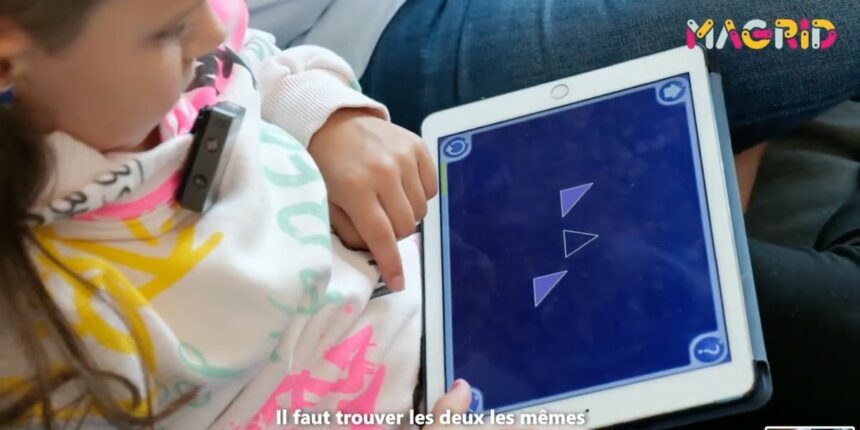Magrid is a math learning solution for young children, designed for both those with and without special needs. It was developed by researchers in psychology and neuroscience.
Magrid: An Effective, Evidence-Based Early Learning Application
Magrid is an early childhood learning app that effectively enhances the development of early math, visuospatial, and cognitive skills in children aged 3 to 9, and for children with special educational needs up to 12 years old. Its intuitive, language-free interface makes it a reliable tool to help children succeed academically. Years of research in neuroscience and psychology, particularly in numerical cognition, have culminated in the development of this project, now implemented in real-world settings.
Simple to Use and Aligned with WHO Screen Time Recommendations
Magrid can be used offline and is preferably accessed via a tablet. It is recommended for use 3 to 4 weeks at a time, with a maximum daily usage of 10 minutes, adhering to the World Health Organization’s guidelines for screen time in young children.
The program is already available and can be downloaded from the Apple Store, Google Play, or Microsoft Office.
An Innovative, Inclusive Math Learning Program with Global Recognition
Rooted in two award-winning doctoral research projects conducted at the University of Luxembourg, Magrid is based on a scientific approach that has demonstrated effectiveness in diverse, multicultural educational contexts. Scientific studies conducted in France, Germany, and Luxembourg have validated the significant progress made by students using the program. These studies revealed that Magrid not only strengthens math skills but also boosts students’ confidence, particularly in multilingual environments and for children with special educational needs.
A Universal Visual Method for Learning Math
Magrid employs an innovative pedagogical approach that allows students to grasp mathematical concepts through simple, intuitive visual representations. This method is especially suitable for children with learning difficulties, those from multicultural backgrounds, or those who do not master the language of instruction. The platform helps overcome linguistic and cultural barriers, enabling each child to learn at their own pace.




International Recognition for Its Educational Impact
Since its inception, Magrid has received several prestigious awards, including the European Investment Bank (EIB) Social Innovation Prize, the United Nations World Summit Awards, and a finalist spot at the WISE Awards (World Innovation Summit for Education). These accolades reflect Magrid’s growing global impact in education and its potential to transform math teaching worldwide. Additionally, Magrid has been ranked among the Top 40 most innovative education startups globally, reinforcing its leadership position in the EdTech sector.
A Solution for Teachers, Parents, and Students
Magrid goes beyond classroom math teaching. It provides teachers with tools to monitor and tailor learning to individual student needs. Parents can also track their children’s progress and actively support their learning. This inclusive and collaborative approach engages all stakeholders to ensure student success.
Summary
Magrid is an innovative, research-based educational solution recognized for its effectiveness. It enables students, regardless of their level or specific needs, to build solid math skills at their own pace. By overcoming linguistic and cultural barriers, Magrid provides every child with an equal chance to succeed, while equipping teachers and parents with the tools needed to support learning.
Magrid remains a scientific project, with ongoing studies involving psychologists and education researchers. For those interested in internships or scientific studies related to Magrid, you can contact the research coordinator.
To learn more, visit:
- Thesis 1: “Magrid – From developing a language-neutral learning application to predictive learning analytics” by Dr. Tahereh Pazouki, 2020. Read more
- Thesis 2: “The spatial road to mathematics – from the relation between spatial skills and early mathematics towards interventions” by Dr. Véronique Cornu, 2018. Read more








